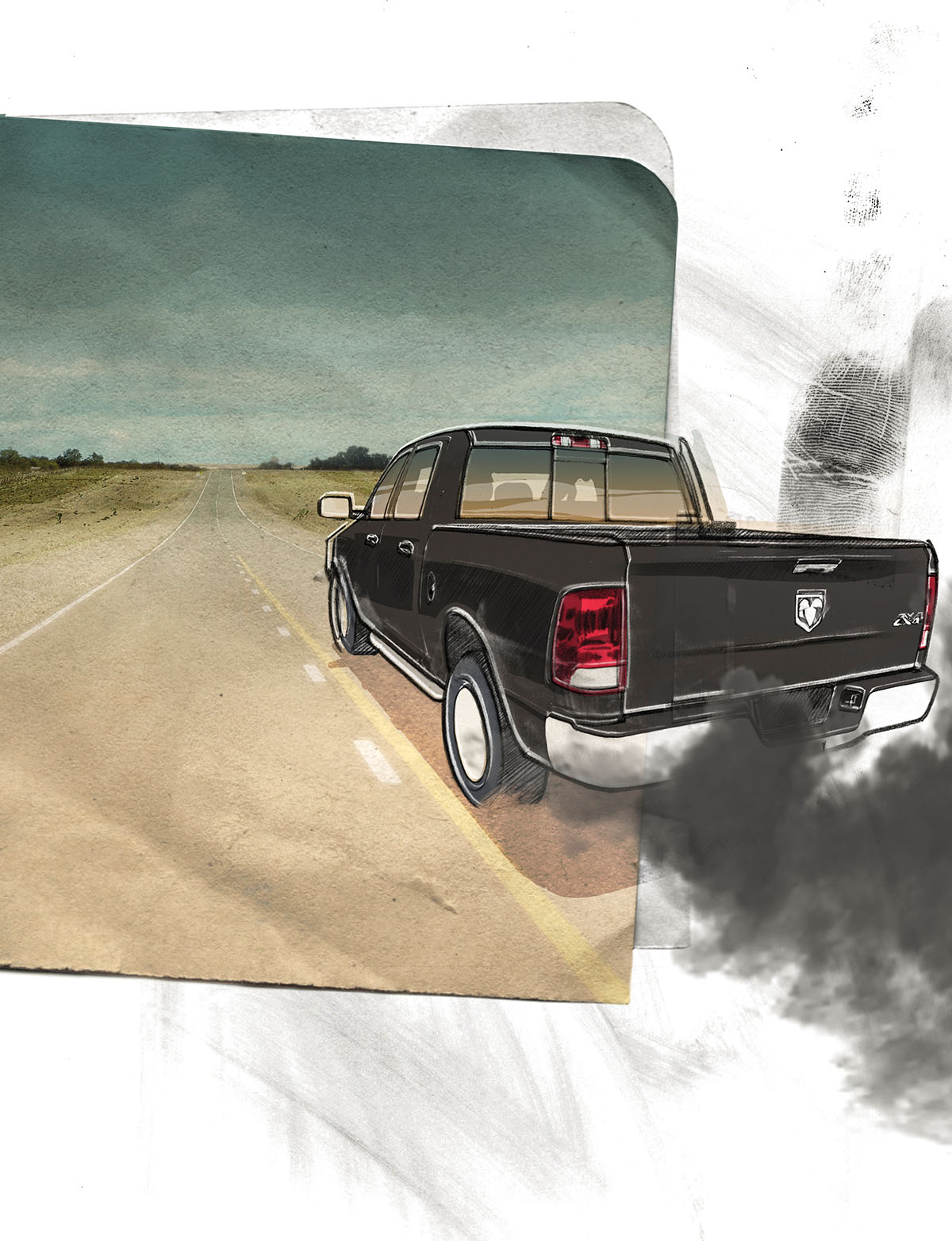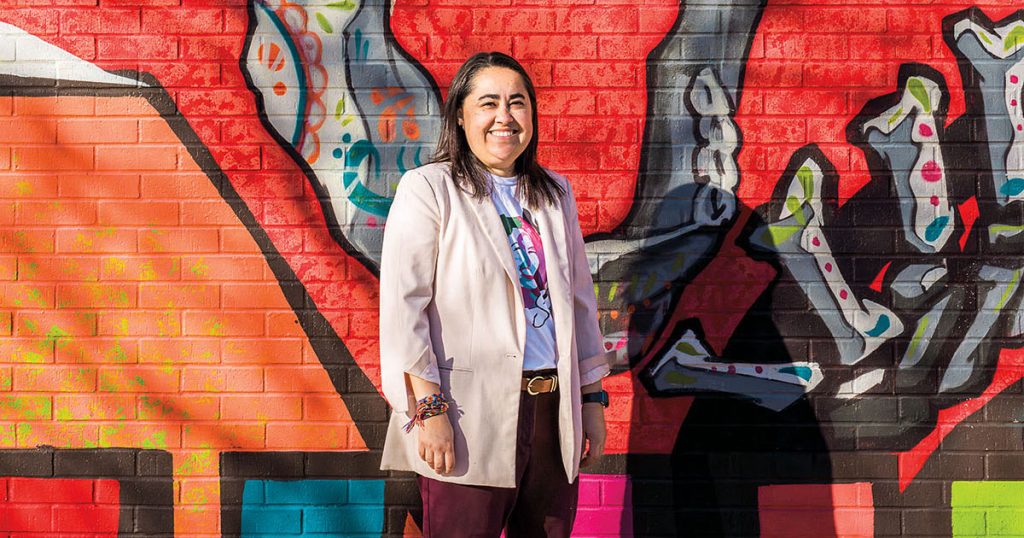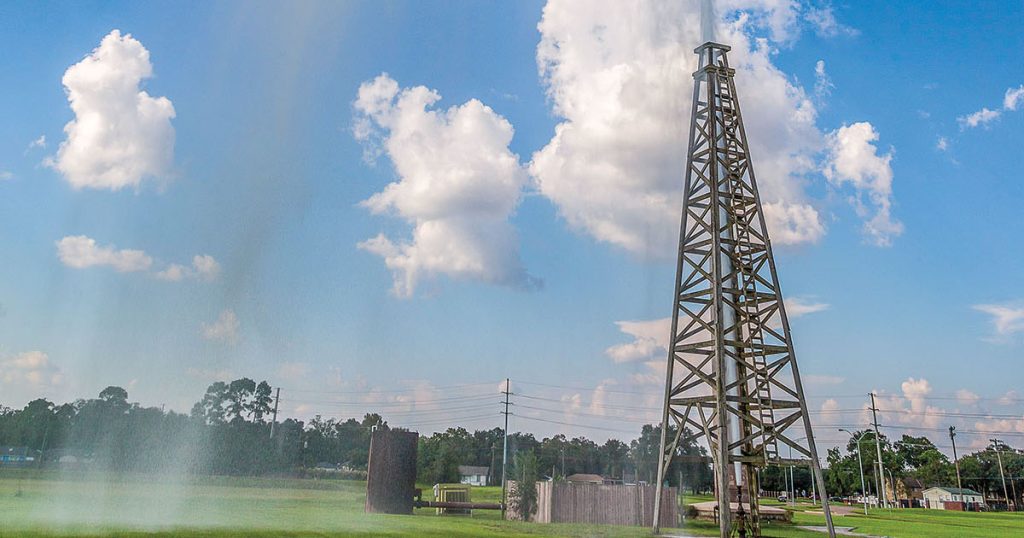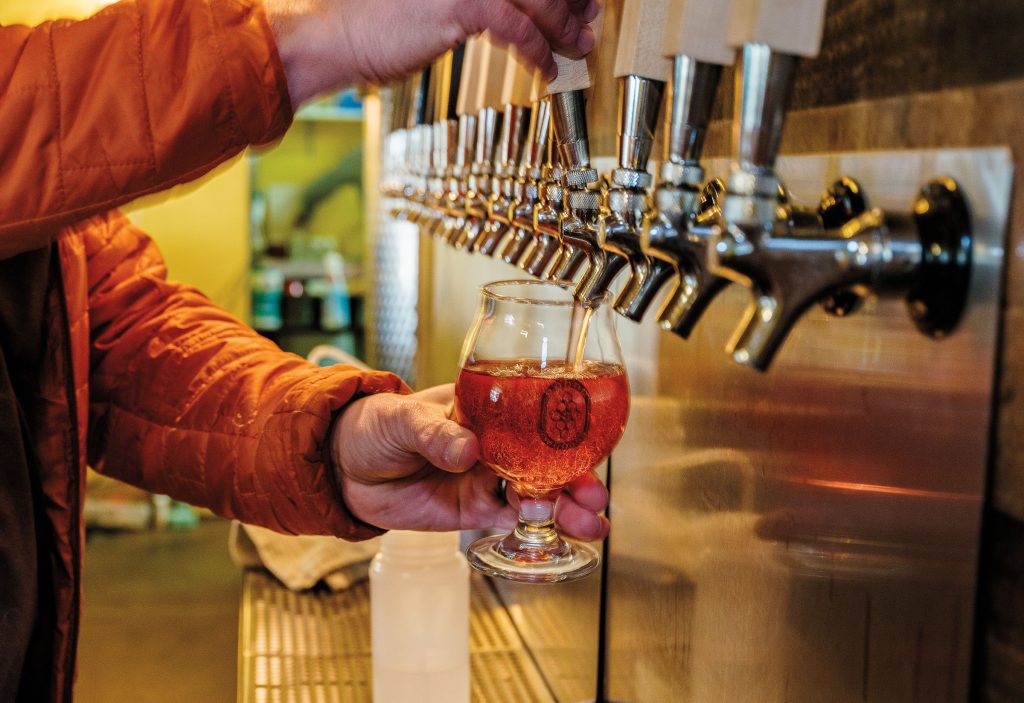
The Lengths We’ll Go
A family stays connected on the road
My mother was 30 years old when she came to the United States from Changchun, China. This was 1992. She spent her first year alone, enrolling in the University of Mississippi in Oxford with a graduate student visa and working a babysitting job on the side that paid $2 an hour. Her plan was to establish a life for our family, then bring me and my father over.
During that year, my parents communicated via an unreliable email system, handwritten letters, and the occasional phone call. My mother tells me of nights when she would dream she was with us, only to wake up crying at the reality of her loneliness. A new mother, so separated from her husband and 2-year-old child. The price one pays for the American Dream, she and so many others believed at the time, amounted to the heartbreak of letting go.
A year later, my father joined her in the States, leaving me with my grandparents. My parents were together again, but this time without me. I remember speaking with them over the phone, the sound of their voices growing more unfamiliar with each call. They were gaining new inflections, the echoes of a new language mixing with the old. I was different, too, growing quickly under the fastidious care of my grandparents. Soon, very soon, I would forget my parents.
When I eventually immigrated to the States two years later, at 5, I did not recognize them. In the airport I stood, pigeon-toed, three sweaters on my back, not looking my parents in the eyes. They had been gone for so long that they felt like strangers. When they picked me up for a kiss, I turned away.
In 2000, my parents and I moved to Austin, traversing the southern states in our black Toyota Camry and a half-full moving truck. It was a strange but welcome reprieve from the bucolic quietude of Oxford—in place of magnolia trees, giant rocky cliffs that had been cloven in two to make way for the snaking highway. We lived in the Lost Creek neighborhood, finally shedding the graduate school housing of my parents’ earlier years with a real house. By the time I was in high school, my mother was commuting to San Antonio every day for work via Interstate 35. Even in 2004, the drive was odious. Austin was growing at an unprecedented rate, certainly beyond the limits of what its hippie college town infrastructure could sustain. The corridor between Austin and San Antonio was and remains one of the most clogged roadways in the state, with more than 100,000 vehicles passing through on average per day.
For my mother, though, the drive was negligible compared to the relief it gave our family. My father had been unemployed for years by this point—a casualty of working in tech startups during the dot-com bubble. Faced with our mortgage, my impending college tuition, and the unknown future, my mother accepted the commute without question. Making money, even if it was all the way in San Antonio, was worth everything.
From our house in western Austin, my mother would make a right onto State Highway 360, get on the US 290/SH 71 ramp east toward Bastrop, then take the exit for southbound I-35, where she remained for 65 lonely miles before connecting to the I-410 Loop for the final stretch of her 96-mile trip to Northwest Vista College. At 8:50 a.m., after roughly one hour and 45 minutes, she walked into the classroom and stationed herself at the projector just as the first bleary-eyed students ambled in.
For six years, this was her route every day of the work week, through the heat, the rain, and the fog. But mostly, the heat.
Texas is a state defined by its roadways and the significant effort it can take to get from one place to another. Any Texan who has lived here long enough can spout off the miles and hours required to traverse the state: about 935 miles, or 12 hours, from the westernmost to easternmost cities.
To live in Texas is to drive. We negotiate between 18-wheelers and pickup trucks and, begrudgingly, a growing fleet of Teslas. We speak the language of courtesy waves and the Texas two-finger hi, measuring distance not in miles but in Buc-ee’s locations. We soar across highway overpasses, tracing clovers and arcs and question marks 100 feet in the sky. We luxuriate in being able to take the wrong exit without much consequence because we can always rely on the Texas turnaround to get us back to where we need to go.
Driving unites us. Part of being a Texan is about the collective understanding of what it takes to get around.
By my sophomore year of college, my parents had moved to Schertz, a town about 20 miles northeast of San Antonio. They chose Schertz because it was close to my mother’s workplace and a relief from the choking prices of Austin. They had only remained so I could finish high school. Now that I was well situated at the University of Texas, there was no reason to stay. Finally, my mother could end her long commute.
I had not approved of the move, had fought and cried against it. We belonged in Austin, I wailed to my parents. Nothing seemed like it would ever hurt as much as tearing our family out of the city I loved, only to move to a town most people didn’t know how to spell. When my mother gave me a tour of our new house in Schertz, I sulked and rolled my eyes. Our old house in Austin, with its quaint courtyard and teal green shutters, was built in the 1970s. But this new house was fresh, the smell of paint still ripe on the walls. It boasted five bedrooms and three bathrooms among two stories, with vaulted ceilings and a kitchen island. There was more space than we were ever allowed to dream of, and yet, I hated it. I hated the fluffy carpet and the French doors to the office—and that there was an office at all. I hated the house’s newness, its blatant difference from our old house in Austin. Most of all, I resented how happy the house made my parents.
Still, the move was final. My parents sold our house in Austin and shuttled their lives and identities to Schertz. Occasionally, I went home on weekends to visit them. The drive was only an hour or so, about a half-hour less than my mother’s former commute. But for me it felt unbearable. When I arrived at home, my parents laid out plates of baked salmon, tomato and egg, stewed green beans, and stir-fried eggplant on the table. My visits grew into a homecoming each time, something to be celebrated given the new physical distance between us. And each time I left, I felt the weight of that distance—how much harder it was for us to be together regularly.
Perhaps that was why I fought against the move so hard. I told myself I was crying and raging because we were losing our identities as Austinites. But that isn’t true. Looking back, it was because I was afraid we were losing our identity as a family.
In 2011, not long after my parents moved to Schertz, my father received a job offer for a position located in Katy, a city just west of Houston. For six years, my mother’s job had been the lifeline of our family. Now, we could have some semblance of security as a double-income household, even if it meant separating our family again. My father took the job. It was decided my mother would remain in Schertz for her job while my father would move to Katy for his. On Friday nights, they took turns making the drive, which was two and a half hours, to see each other before departing on Sunday afternoons back to their respective homes. When possible, I would meet them wherever they were.
Once again, I thought, we were being spread out. I was a junior in college by then and had gained an understanding of the difference between what one wants to do and what one must do. When Sunday evenings came and my father and I both prepared for our drives back to our cities, my mother would putter around in the kitchen, urging us to take extra food. “I’m just one person. I can’t eat all of this,” she would say. “When I’m here alone, eating has no joy.” When I hugged her goodbye, I always felt her let out a small sob. My parents would see each other again next weekend, and the weekend after next. It was no big deal. But goodbye was always difficult. How many times had my parents said goodbye to each other? How many more years would they continue to say goodbye?
The house in Katy was an oddity. The previous tenants tore up the flooring and scratched obscenities on the walls before vacating. To save money, my father went to Home Depot and bought long planks of wood that he laid down next to each other to construct a floor. He didn’t install them properly, so with every step, the floor would shift and creak. Instead of buying real furniture, my father fashioned bookshelves and a dresser out of the leftover planks.
I didn’t mind the drive to Katy from Austin. Once I got out of Austin onto SH 71—past the airport, the car dealerships with their soaring Texas flags, the fast-food chains, and the endless construction—I emerged on a long stretch of highway insulated by vast fields and clusters of trees. It grew quiet and smooth then. AutoZones gave way to fireworks stands, hardware stores to churches and RV campgrounds. Just outside Bastrop, I passed a water tower with a smiley face, a stark contrast to the still-charred trees from the fire that raged through the town in 2011, the most destructive wildfire in state history. After about an hour and a half, I was back on the interstate—this time I-10. The lanes straightened; the earth flattened.
Once, when I visited my parents in Katy over the holidays, I walked in on them riding their stationary bikes, which they had placed next to each other in front of the TV. I don’t know how long I stood there watching them. I felt melancholy seeing them together like this, pedaling in place in the same direction but still separated and going nowhere. My mother had achieved tenure at her community college, and my father was at a good place with work. Neither of them wanted to risk another bout of unemployment by giving up their job.
They shouldn’t have to pedal this hard only to stay in place, I remember thinking. They shouldn’t have to live in this disjointed fracture. I stood there watching them and I wondered: How much longer can we do this? Just how much distance can a family withstand?
When the pandemic hit, my father was allowed to work remotely indefinitely. My parents sold the house in Katy, and my father moved back in with my mother in Schertz. After nearly a decade apart, they could live together under the same roof again, no driving or traveling necessary.
There was the issue of the truck, however. My father had purchased a black Dodge Ram 1500 off Craigslist, a dream car that stood apart from the fuel-efficient Toyota Camrys, Honda Accords, and Kia Spectras our commuting lifestyle demanded. The truck was a crowning achievement for my father, but my mother and I balked at it. There was a fundamental issue with the transmitter and the gears did not work. No matter how much my father tinkered with it, or how many YouTube mechanic tutorials he watched, he could not repair it.
Still, they had to get the truck back to Schertz from Katy. To do this, my father drove the truck at 30 mph while my mother followed close behind in their Toyota, both on speakerphone in case something went wrong. Every so often, they would have to stop because the truck was emitting smoke. My mother revealed later that she was almost certain the truck would give out during this drive. But after four hours, they made it back to the driveway of the house in Schertz.
They did not dare drive the truck again. It sat in the driveway, through the heat and rain and hail and even the catastrophic freeze of 2021. But mostly, the heat. Whenever I came home to visit my parents, I’d park my modest Subaru next to the truck. I felt its mighty presence—the angry sun radiating off the black paint—as I got out to greet my parents, who waited for me at the front door, plates of food already on the table.
Eventually, my father conceded and sold that thing. My mother and I teased him for it. We called it an admittance of defeat. But I knew, deep down, what that truck meant to him. It was more than a car. It was an attempt to command the road and the drive that had dictated so much of his life—of all our lives. Now, untethered from both, there was a chance for reclamation.
When I am able, I visit my parents in Schertz. I like setting out on weekend mornings or early Thursday afternoons, when I-35 hasn’t already come to a complete halt. I don’t like driving at night anymore because my eyes are bad. This is something I have in common with my parents now. The road to San Antonio has not changed much since my mother first started driving on it nearly two decades ago. Construction continues to multiply, and the Taste of China near San Marcos is still in business. The billboards never seem to change, advertising new home builds and the Animal World & Snake Farm Zoo in New Braunfels, car injury lawyers and dirt-cheap insurance quotes, and “Does Advertising Work? Just Did!”
I put on Chinese language learning podcasts, listen to Law & Order SVU episodes that I’ve downloaded on my phone, and blast my favorite karaoke playlist. I sing loudly and poorly. Last summer felt like one of the hottest summers in recent years, but then again, I say this every summer. The sun pierces my driver’s side window, frying the skin on my forearm. I think of how my mother would frown at me for forgetting to put on sunscreen. My mother’s own arm bears the spoils of her driving—sunspots dot her left hand and forearm like steppingstones.
My commute is not as heroic as hers was. As much as I have tried, I cannot make the drive from Austin to Schertz in a single trip without stopping for a nap. Maybe it’s the direction I’m driving in, or the complacent lull of having driven one route too many times. When I drive down to Schertz, I always take Exit 204A and pull into the gas station, put up the sunshade, and nap for 15 minutes, listening to the gentle squabble of the families who stop for the bathroom, the heavy sighs of the truckers who drove overnight. That would never be my mother, though. If we were in a race, my mother would pass me by on the interstate, the car speakers blasting her audiobook of Rebecca by Daphne du Maurier. She would be unbothered by sleepiness or fatigue, fueled instead by the very simple necessity of having a job to do, a family to support.
My parents have been in a long-distance relationship for most of their lives, I often joke. But this is only half true. Our family is one of long distance, of traveling and driving and yearning. This is what it is for us to live in Texas, in America. Always a family of leaving and returning. Always a family defined, like our state, by the distance between us and the journeys we take to reunite.
These days, I’m busier than ever in Austin, which means I can’t go home as much as I’d like. Conversely, my parents’ workloads have lessened. They travel more now, taking weekend trips to Fredericksburg and Enchanted Rock and Lost Maples. They also drive to Austin to see me. Sometimes to deliver dumplings when I am sick, other times to have a meal together on a particularly nice day. The trip is still a little over an hour, which simultaneously feels so close and so far. It’s OK, though. This is our version of being whole—as immigrants and as Texans. For now, let us be whole.








